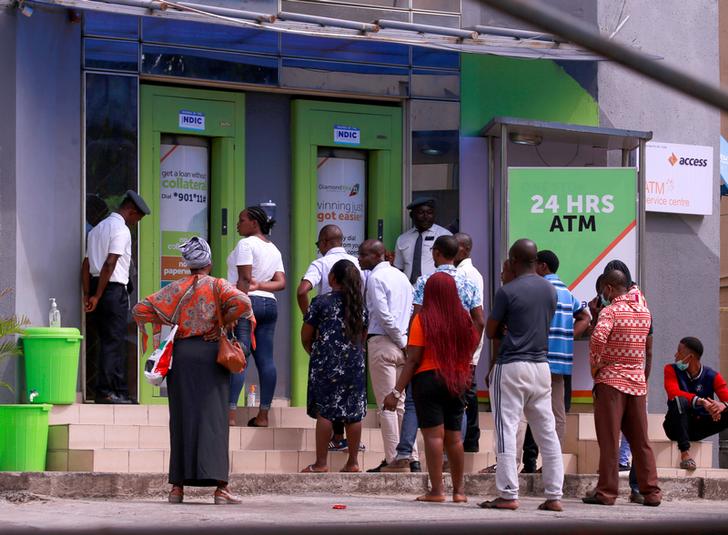The dividend yield on the NSE 30 Index at the end of May stood at 6.26%, meaning income for investors was more than 50% higher than in South Africa (4.21%), Egypt (4.01%) and Kenya (3.77%), research from Chapel Hill Denham in Lagos shows.
Even so, international investors are likely to give Nigerian stocks a wide berth due to fears of further currency instability, says Ibrahim Shelleng, managing director at Credent Investment Managers in Abuja. Real Nigerian dividend yields after inflation are still negative, he adds. Core inflation in the first quarter was over 18%, whilst the highest dividend yields were around 14%.
Interest is more likely to come from domestic investors facing limited alternatives, Shelleng says. Local investors will need to discriminate between high-yielding stocks.
- Shelleng sees the fast-moving consumer goods sector as exposed to the risk of further currency devaluation as well as internal security issues.
- Such companies may rely on raw material imports or might not be able to source enough locally to meet demand.
“Financial services stocks have shown consistency over time and would remain favourites to sustain their dividend yield,” he says. Commercial banks, he argues, have been able to sustain profitability through a series of recessions. “That cannot be said for other sectors, which may feel the effects of numerous economic shocks.”
The Augusto & Co. credit rating agency in Lagos predicts that Nigeria’s banks will achieve an overall pre-tax average return on equity (ROE) of 21.8% in 2021. This will be as a result of higher electronic banking income, naira devaluation gains from assets which earn foreign currency and growth in the agency banking network accelerated by Covid-19.
Bank stocks
While Nigerian equities are attractive relative to emerging market peers, “fixed income returns are steadily outpacing dividend yields creating a disincentive for investors,” says Nkemdilim Nwadialor, a banking analyst in Lagos.
Still, she sees sustainable yields available at Zenith, Guaranty Trust Bank (GTB), Stanbic IBTC, United Bank for Africa, and Fidelity Bank. They have had the most consistent dividend payment policies over the last three to five years, she says. “Barring any major headwinds, I expect that to remain the case over the next two to three years.”
- Earnings at Zenith have held up well during Covid-19, with the bank recording a 5% increase in first-quarter net income.
- Standard and Poor’s expects the bank to maintain a stable dividend payout ratio of about 40% of net income through 2022.
- Zenith’s current dividend yield of 13.1% is above the five-year average of 12.5%, according to Morningstar.
- GTB, the country’s largest bank by market value, has a yield of 10.6%, also higher than its five-year average of 8.1%.
FBN Holdings (FBNH), Access Bank and Ecobank Transnational (ETI) are more risky and should be avoided, Nwadialor says.
In April, the central bank removed FBNH’s non-executive directors from the board after finding failings in corporate governance. That could mean significant structural changes which might affect dividend policy, she says.
According to Fitch Ratings, FBNH’s profitability metrics lags behind that of the other large banks, mainly due to high loan impairment charges. The enforced board changes are “hugely disruptive”, Fitch says.
Due to its aggressive expansion across Africa, Access Bank has not maintained frequent dividend payments over the past five years. With continued expansion, the unstable dividend regime is likely to persist for the next 12 to 18 months, Nwadialor says.
ETI, meanwhile, has not paid dividends in the last three years, so any purchase would be a speculative punt on a share-price rebound, she adds.
Bottom line
Domestic investors should pick quality names in the banking sector rather than chasing the highest available yield.

